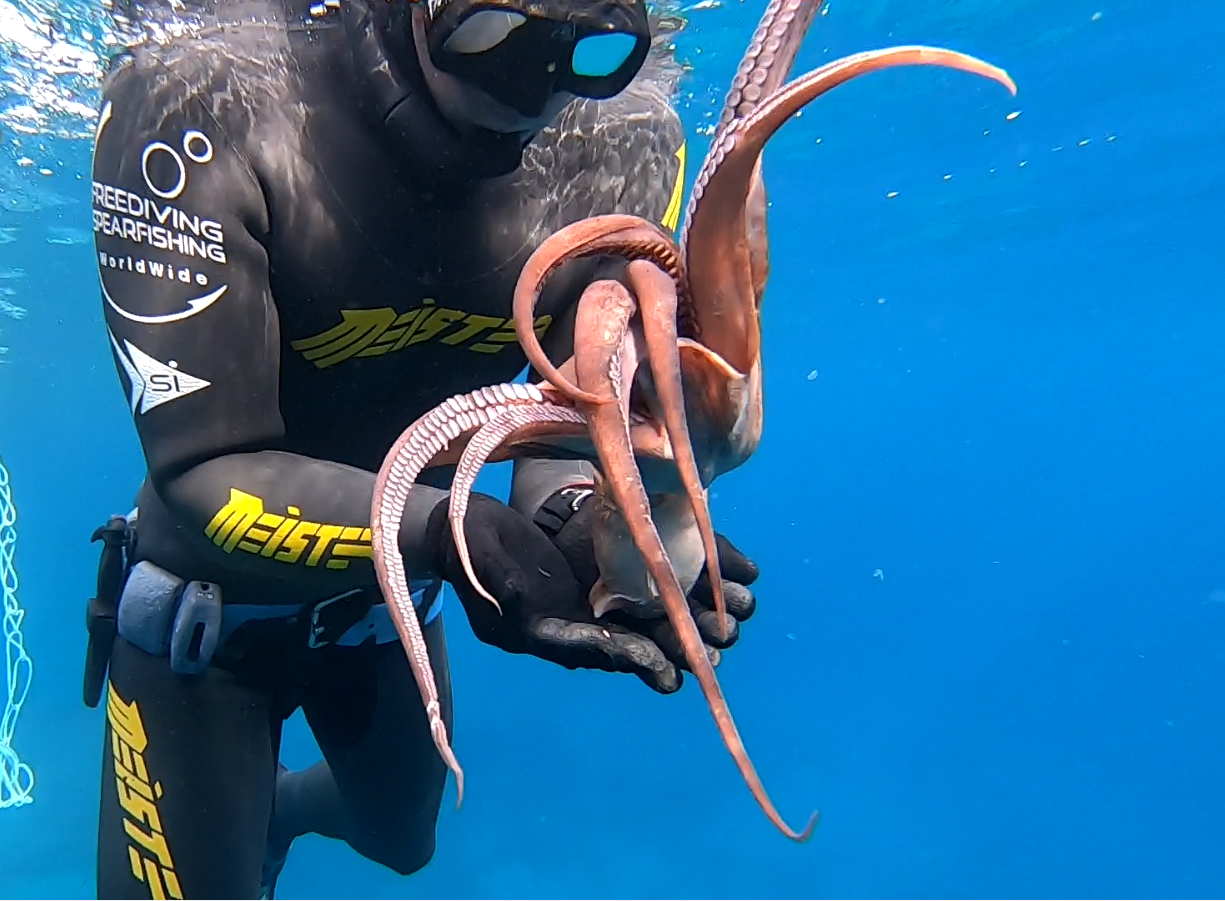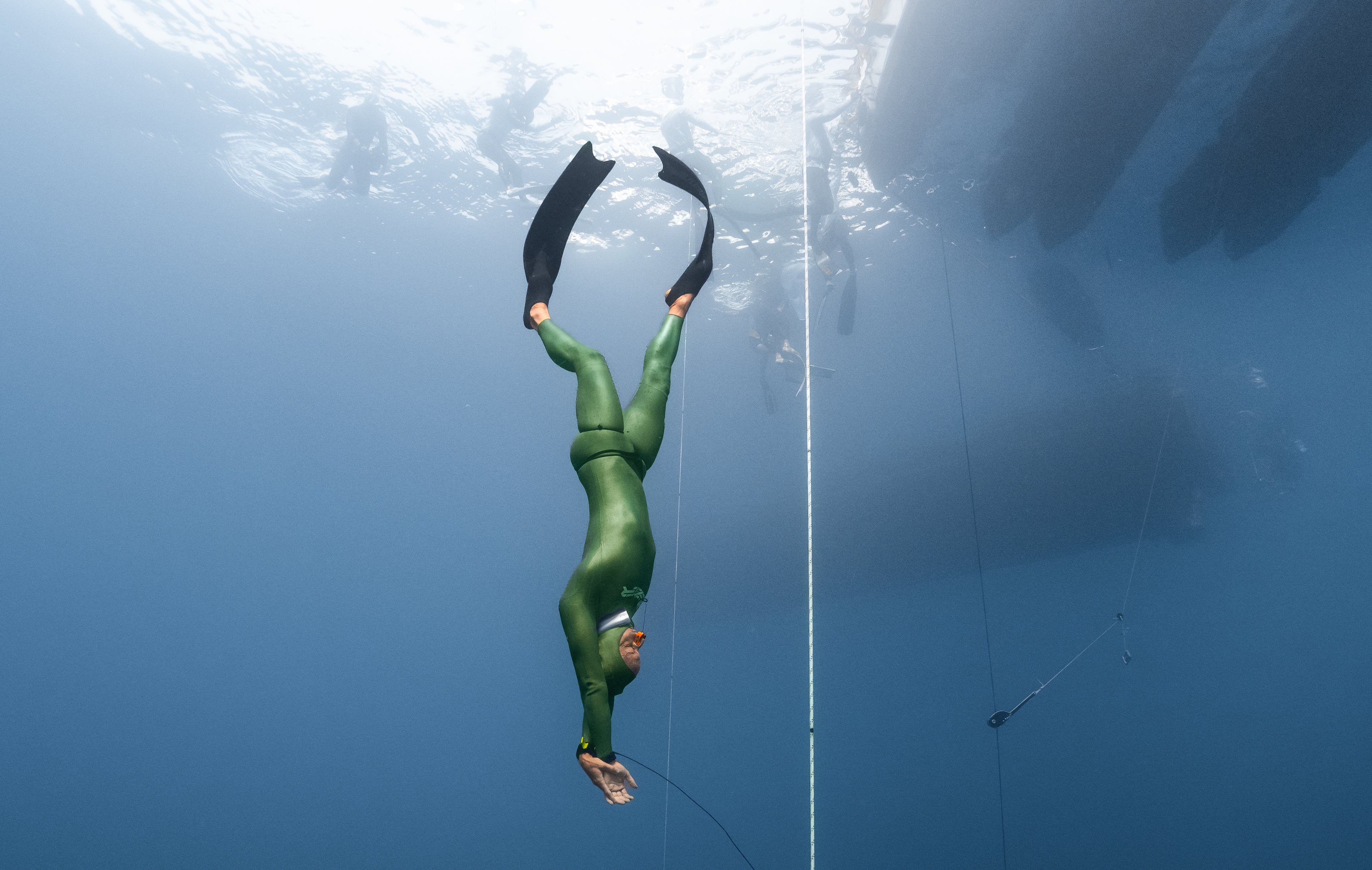Manolis Giankos: Freedom of the sea
Manolis Giankos discovered a strong connection with nature through freediving. This record-breaking adventurer, who is currently planning several trips for Arksen Adventures, believes only by going deep into the ocean can you truly understand it. This is his story.
As a young boy in a small beachside town in Greece, Giankos grew up in the water. A keen swimmer, he was introduced to spear fishing at age 11 and became obsessed, building up his capabilities to dive deeper and further in pursuit of his prey.
That may sound strange for a man who is now a staunch conservationist, passionate about protecting the ocean and its inhabitants, but it is the ability to dive naturally, free of tank assistance, that he feels made him truly connect with the underwater world around him.
“You might think spearfishing is contradictory with ecology,” he begins. “But if you’ve spent time in the water trying to understand how the environment works, in order to be more productive, it opens your eyes and makes you understand things better.
“You understand how nature works and it is only natural then that you become self-aware of your position in the planet – what is your role, how do you affect things – and you start understanding what should be done and what should not be done.
“When you are scuba diving, you might think you can have a tank on your back, observe the environment and connect with it, but it is far from the truth. You have to be very discreet, quiet and subtle to really see what's going on, otherwise you only get a glimpse of it.
“As a freediver, if you are educated and know what to do, you have the ability to be more relaxed and more comfortable and this will give you the ability to observe better and understand better what's going on underwater.”
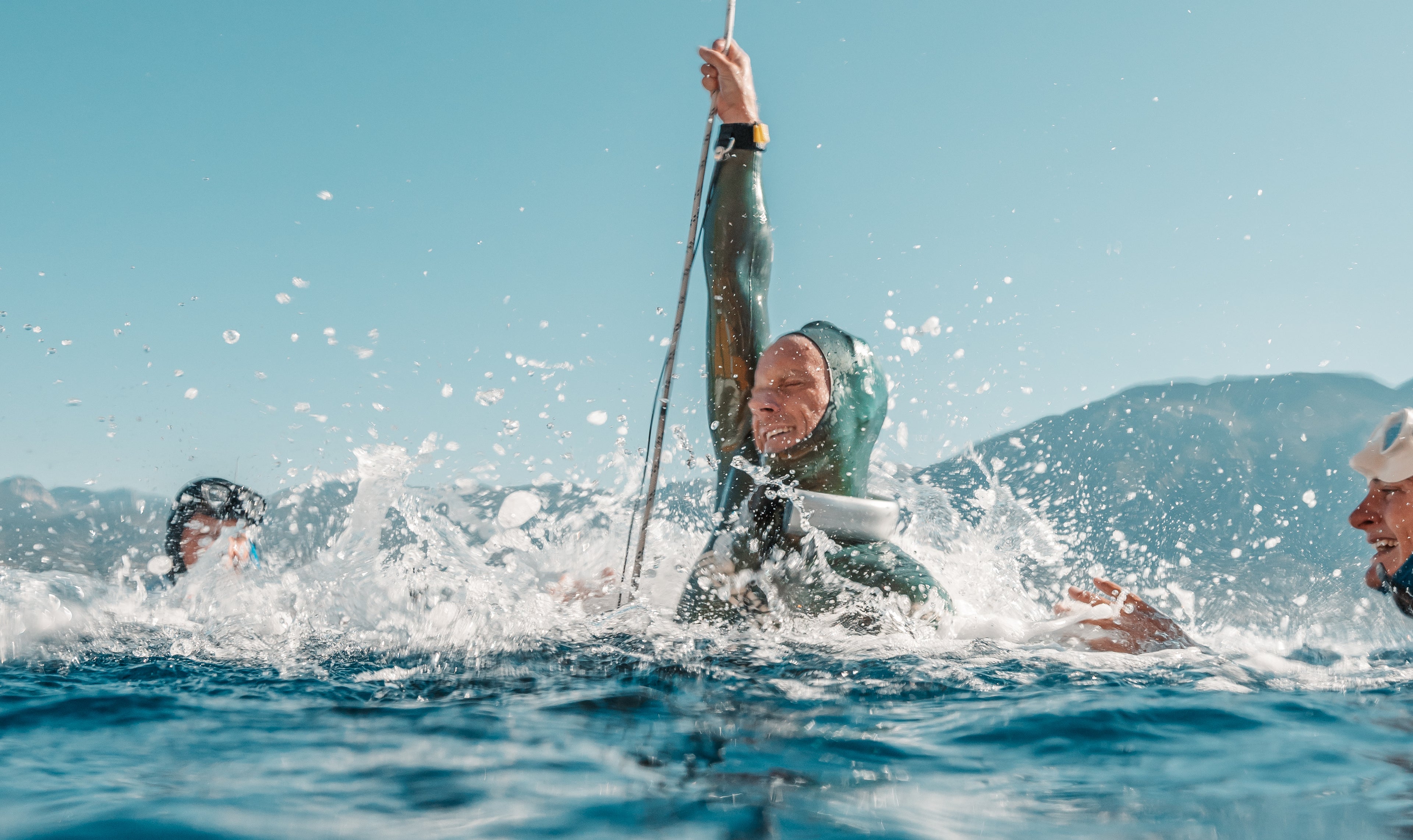
Amazing freediving adventures
Giankos was progressing towards becoming a professional swimmer until the age of 17, when he had to choose between sport and education and, like many of his peers, he chose to stop being an athlete and put more time and energy into studying for his exams.
He achieved the results to join a university and went on to earn a Bachelor's degree in Radiology, another in Sports Science, a Postgraduate Degree in Business Administration and another in Modern Radiotherapy.
However, he still yearned for the sport that was missing from his life and, inspired by the spear fishing experiences in his younger years, he decided to pursue a career in freediving – which ultimate became his lifelong career.
He quickly began to get good results in freediving competitions and became better and better as the years went on. He is now a multiple champion and record-breaker – but even compared to most other freedivers, his approach is far from the norm.
“A lot of freedivers just go for the depth,” he explains. “That is very compelling, very special, and the images of them are very spectacular – but in doing so most are acting like they are fighting against the depth and fighting the sea.
“My perspective is completely the opposite. I try to be a part of it. I try to accept what is going on and to explore the limits of human nature, to push my personal limits, but to understand what the requirements of the environment are to do so.
“Being able to go to greater depths and hold your breath for longer gives you the ability to understand and study the environment under the water far better. Most people try to conquer the environment, I try to get absorbed it.”
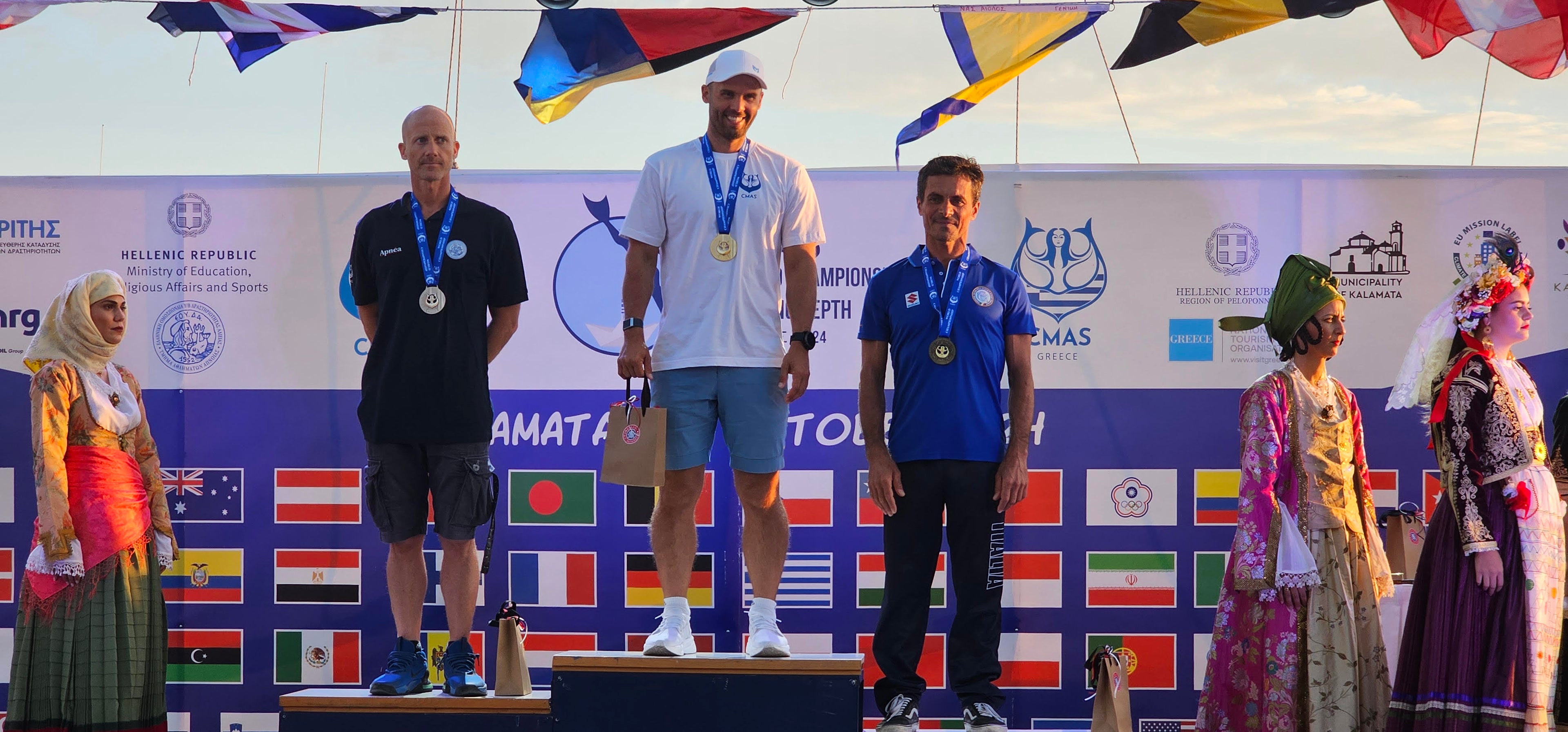
Beginners learning to freedive
For those who live by the sea in Greece, freediving is a natural part of everyday life. Giankos says almost everyone either freedives themselves or knows someone who does, and every house has at least one pair of fins and a mask and sometimes a spear gun.
In other countries, its popularity has grown through internet media and spectacular images and he explains: “If you’re looking for a transforming experience that will bring you closer to nature and make you look deeper in yourself, freediving really grabs your attention.
“It’s very easy for someone to start and to develop fast, because there are good educational systems that are designed not for people who have excessively athletic abilities but for people who are just simply healthy.
“You might think that to freedive you must deprive yourself from something very crucial –your breath – but your body actually has great capabilities. It’s not that you cannot hold your breath longer or swim under water longer, it’s just you don't know how to do it yet.
“Up to a certain level, it's a matter of technique and just practicing. It's not something extreme to hold your breath for four minutes, to dive to 30m of depth or to do 75m of dynamic apnoea underwater swimming.”
Most educational programs last around one week, beginning with the basics of equipment, physiology, how the breath works and how to control the feelings, and a beginner can go from zero to 10m in a five-day program, with each further week extending by another 10m.
Over the years, Giankos has taught hundreds of people to freedive, including Arksen founder Jasper Smith and his family, and he says one of the most challenging parts of the job is not getting people to feel the freedom, but having to stop them from progressing too fast.
“This is a very beautiful sport, but it can also be dangerous if you don't know the specifics,” he explains. “Diving ability comes with a certain package of knowledge and if you have the ability without the knowledge, it can become dangerous.”
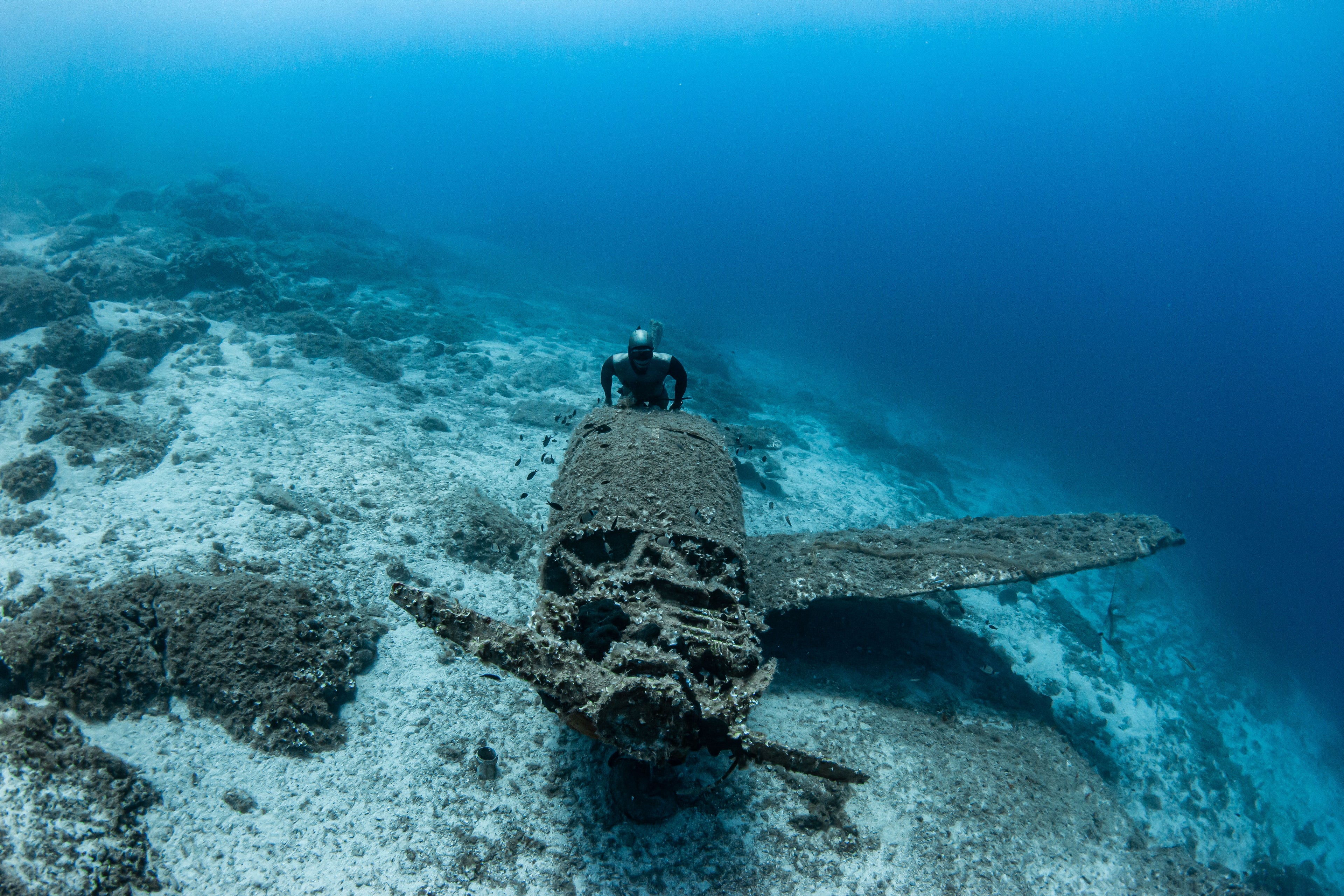
Freediving locations around the world
Giankos, who is still based in Greece, has travelled extensively to freedive and his next destination is Nicaragua, where he plans to attempt a world record freshwater depth dive in June. So, where does he think is the best freediving destination in the world?
“It really depends on what you are doing,” he begins. “For recreational freediving, the Mediterranean is great. It’s safe, there are no currents, visibility is mostly great, the water is relatively warm, the sea bed is quite beautiful and there are no dangerous species.
“Japan has some volcanic sites with great underwater structures – the visibility and warmth are not so good, but it is spectacular – and anything near the Equator is warm, with lots of corals and fish, and at the right time of the year the water can be beautifully clear.”
